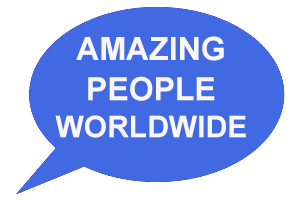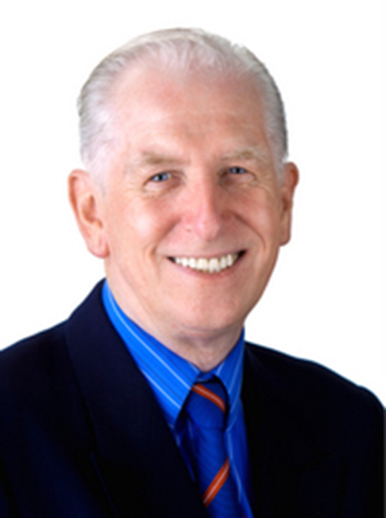Character & Career Education
Making Use of a Doctoral Degree
By Dr Charles Margerison
Psychologist
Introduction
People often ask me, “what do you do?” In particular, they want to know why I am developing new educational innovations at an age when I could relax and retire! Instead, I spend at least 50 hours each week creating, funding and coordinating education resources for students. They all have a focus on how character development is the foundation for career and life choices. This started when I worked for 5 years to gain a Ph.D. qualification. The topic that fascinated me then, and now, is how we can support students to develop their character strengths which guide them throughout their lives and in the choices they make. This year, my original research has been published as an e-book. It relates to the current challenge that teachers have, which involves linking experiential action learning with modern virtual technologies, to support students with what I call character-led career development. A colleague, Marion Andersson, suggested I write this article about my own career, as an example of the personal action learning applications and in conjunction with the publication of the below Ph.D. I trust it will be helpful to those who are involved in character and career development.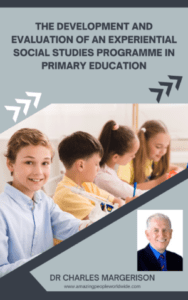
Doctoral Degree 1971
In 1971, I was awarded a doctoral degree. Only eleven years before, I had left employment as a clerk at the Birkenhead Welfare Department for social services to enter full time education as an undergraduate student at the London University School of Economics. In the next decade, I made important decisions. These included finding places to live, gaining an academic degree, securing my first professional job, getting married, having children, and investing in a start-up publishing business. In 1966, I also made the decision to study for a doctoral degree, which I felt would improve my career opportunities.How Does A Democratic Society Operate?
The topic I chose was based on a conversation I had with my wife, who was a teacher in the local Baildon Primary School. She was expected to educate students, aged eight and nine years old, about the founding of Parliament and how a democratic society operates. We both agreed that was a difficult assignment, given the students had little experience of life beyond the village of Baildon, Yorkshire.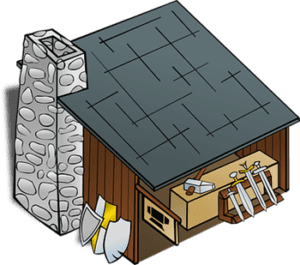 Having studied sociology, politics and psychology for my university degree, I was fascinated by the challenge. I suggested that the children could learn about democracy by role playing.
Could this be done by virtual means? Using a large table, the students could create an island society. They could make buildings out of cardboard and discuss important questions. For example, who should make the laws? Would they have a police force, and who would decide if people should be punished for breaking laws? Who would pay for schools and hospitals? What would they use for money, and should everyone be paid the same amount?
Having studied sociology, politics and psychology for my university degree, I was fascinated by the challenge. I suggested that the children could learn about democracy by role playing.
Could this be done by virtual means? Using a large table, the students could create an island society. They could make buildings out of cardboard and discuss important questions. For example, who should make the laws? Would they have a police force, and who would decide if people should be punished for breaking laws? Who would pay for schools and hospitals? What would they use for money, and should everyone be paid the same amount? All of these are important questions in any community. Could students in a village Primary School learn, via group discussions, how to make social, economic, legal and political decisions?
An Interactive Approach Formed The Basis For Doctoral Research
The idea was shared with Mr Butterfield, the Headteacher. He agreed that it would be an innovative interactive approach to learning. I indicated it could form the basis for doctoral research that I was planning to do. He was supportive, and agreed that I design and deliver lessons each week as part of the social studies curriculum, under the guidance of my wife who was a qualified teacher. The project was unusual and had risks, which some would say were too high. Firstly, I did not have any teaching qualifications. Secondly, my full-time role at the time had nothing to do with Primary level education. I was a coordinator of continuing professional development workshops for executives. Thirdly, I had no previous experience in the design and development of such educational research. Reflecting on the decision now, I can see the Headmaster probably supported me because he knew my wife had the teaching skills to resolve classroom issues if problems arose.Meeting the Established Criteria For The Research By Action Learning
To do a doctoral degree, I also needed support at Bradford University, which had only been established in 1966. I was one of the first doctoral candidates. I had to convince the internal committee, and an external supervisor, that the research met the established criteria. No doubt, my enthusiasm for the assignment was as important in gaining agreement, as the research design was more an idea than a plan. So, I commenced what became my first action learning project, not realising it would take me five years to complete.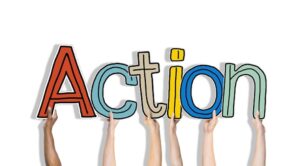 The examiners later commented that the classroom action outstripped the original objectives and plans. It was a virtual project that became ‘real’ to the students, as we were learning by doing. However, who learnt the most? I learned a lot about applied psychology, and how students develop. Also, and of more importance, it was clear that the students from their level of conversations and writing learned an enormous amount about how a democratic community can work.
The students involved will now be about 60 years of age. It would be most interesting to see how many of them remember the educational experience. It would be valuable to know if their involvement had an influence on the decisions they made in their careers and life. Did any of them take on career roles which were similar to the ones in which they participated during the lessons? Did any of them become active in public service, and take on elected roles at local or national levels?
The examiners later commented that the classroom action outstripped the original objectives and plans. It was a virtual project that became ‘real’ to the students, as we were learning by doing. However, who learnt the most? I learned a lot about applied psychology, and how students develop. Also, and of more importance, it was clear that the students from their level of conversations and writing learned an enormous amount about how a democratic community can work.
The students involved will now be about 60 years of age. It would be most interesting to see how many of them remember the educational experience. It would be valuable to know if their involvement had an influence on the decisions they made in their careers and life. Did any of them take on career roles which were similar to the ones in which they participated during the lessons? Did any of them become active in public service, and take on elected roles at local or national levels? Moving On With My Career
The experience certainly influenced the decisions I took in my career.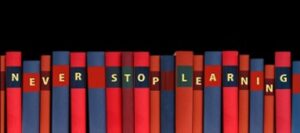
1 – Teaching
I increasingly questioned, and moved away from, teaching in the formal sense of giving lectures and talks. I focussed more on helping people learn through experience and discussion. I became more of a coordinator and facilitator of learning. That led me to develop learning experiences based on real tasks with operational teams. I focussed more on the process of improving interactions and communications, rather than the content.
2 – Psychology
The experience convinced me that psychology was the area of education in which I should specialise. In particular, I became involved in studying problem solving conversations and teamwork. In the following years, I wrote a number of books on those topics, and later a major publication on consulting skills.
3 – Communication
The work enabled me to summarise complex events. Therefore, I improved my writing skills. At the end of the process, I understood scientific thinking and practice. I became particularly interested in the philosophy and methodology of science, and acquired the language to discuss with confidence the validity, reliability and substance of research. This was invaluable when I became a supervisor of research projects, and in my role as the editor of journals that published research.
4 – Organisation
The doctorate process gave me confidence that I could design and complete a complex assignment over five years. That involved a high degree of self /time management. I had major commitments in my full-time employment role. In addition, my work as a director in the journals publishing company, and my emerging role as a psychology consultant to businesses, gave me practical experience. Also, I had increasing family responsibilities as, during that time, two of my children were born.
5 – Language
The discussions showed me that I could interact with young children and converse at their level of understanding. At the same time, I learned how to interact with experts in the educational field, and convince them of the findings. That required two very different levels of language ability. That meant I understood the statistical and applied psychological concepts of thinking and explanation. Therefore, I gained considerable confidence at different levels from the educational project and research.
Learning and Technology
Completing the doctorate was only a start for my action learning educational explorations, and other voyages of discovery, which continue to this day. It is fascinating to see how the advance of technology has speeded up search and reference processes. It took a long time to find information in 1966. Since then, fax machines, computers, the internet and mobile phones are just some of the ways in which access to information and ideas has improved. It has been an enjoyable challenge to keep up with the changes. Now, with the help of colleagues, I am able to publish my original research in digital form through the magic of orbiting satellites, which did not exist at the time I started my doctorate.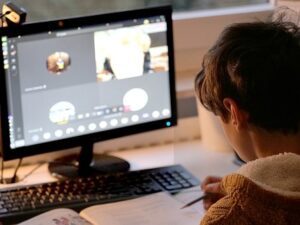 Although technology has not replaced the role of the teacher, it has, however, changed the requirements. My view is we should refer to teachers as learning coordinators. This was the role I had at Baildon Primary School. By posing challenges and questions, I was encouraging students to learn through discussion and action.
Although technology has not replaced the role of the teacher, it has, however, changed the requirements. My view is we should refer to teachers as learning coordinators. This was the role I had at Baildon Primary School. By posing challenges and questions, I was encouraging students to learn through discussion and action. The Relevance of The Research & My Educational Contributions
The topic of my doctorate is more relevant today than when I completed it. Today, schools focus on character and wellbeing education, as major issues to complement the traditional curriculum. My contributions to those areas of education are as follows:Amazing People Worldwide (APWW) 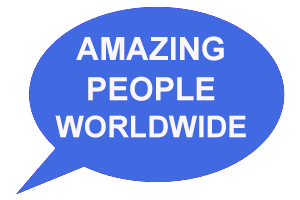 I founded this publishing organization in 2006 and it is home to the world’s largest collection of inspirational life stories, articles, and news about achievement and amazing people. Here, people can be inspired to discover their purpose and reach their full potential. You can read more on my research at www.amazingpeopleworldwide.com .
I founded this publishing organization in 2006 and it is home to the world’s largest collection of inspirational life stories, articles, and news about achievement and amazing people. Here, people can be inspired to discover their purpose and reach their full potential. You can read more on my research at www.amazingpeopleworldwide.com .
Amazing People Schools (APS) 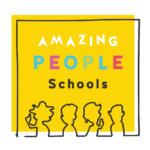 www.amazingpeopleschools.com shows the applications from my doctoral research are ongoing, to support students in their learning about the way society works.
www.amazingpeopleschools.com shows the applications from my doctoral research are ongoing, to support students in their learning about the way society works.
Can Do Kids Band (CDKB)  www.candokidsband.com. This online resource, which has the motto ‘follow the music and learn about people and places’, helps students understand different countries, their cultures and community activities. Again, this is a continuation of the issues involved in my doctoral research.
www.candokidsband.com. This online resource, which has the motto ‘follow the music and learn about people and places’, helps students understand different countries, their cultures and community activities. Again, this is a continuation of the issues involved in my doctoral research.
Explore Imagineland (EI) Explore Imagineland (EI)- For early learners, I have developed this resource to support parents and carers, as well as educators. It helps young students with important issues like fairness, creativity, inclusiveness, happiness and other topics – see www.exploreimagineland.com . Imagineland is very similar to the deserted island idea that was the start of the discussions on democracy at Baildon Primary School.
Explore Imagineland (EI)- For early learners, I have developed this resource to support parents and carers, as well as educators. It helps young students with important issues like fairness, creativity, inclusiveness, happiness and other topics – see www.exploreimagineland.com . Imagineland is very similar to the deserted island idea that was the start of the discussions on democracy at Baildon Primary School.
Therefore, I am still involved in what I commenced in 1966. May it long continue.
“The Development And Evaluation Of An Experiential Social Studies Programme In Primary Education”
